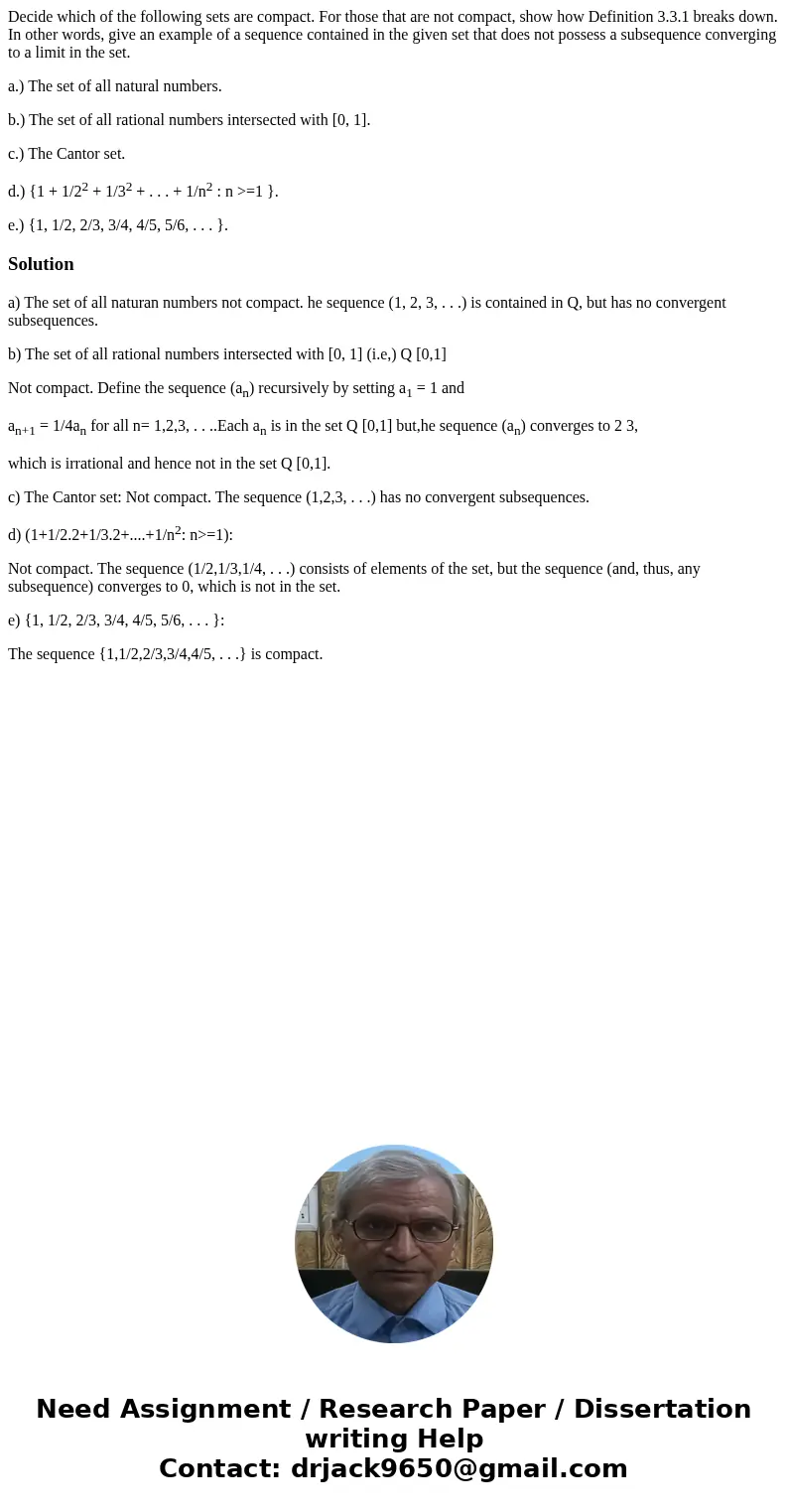Decide which of the following sets are compact For those tha
Decide which of the following sets are compact. For those that are not compact, show how Definition 3.3.1 breaks down. In other words, give an example of a sequence contained in the given set that does not possess a subsequence converging to a limit in the set.
a.) The set of all natural numbers.
b.) The set of all rational numbers intersected with [0, 1].
c.) The Cantor set.
d.) {1 + 1/22 + 1/32 + . . . + 1/n2 : n >=1 }.
e.) {1, 1/2, 2/3, 3/4, 4/5, 5/6, . . . }.
Solution
a) The set of all naturan numbers not compact. he sequence (1, 2, 3, . . .) is contained in Q, but has no convergent subsequences.
b) The set of all rational numbers intersected with [0, 1] (i.e,) Q [0,1]
Not compact. Define the sequence (an) recursively by setting a1 = 1 and
an+1 = 1/4an for all n= 1,2,3, . . ..Each an is in the set Q [0,1] but,he sequence (an) converges to 2 3,
which is irrational and hence not in the set Q [0,1].
c) The Cantor set: Not compact. The sequence (1,2,3, . . .) has no convergent subsequences.
d) (1+1/2.2+1/3.2+....+1/n2: n>=1):
Not compact. The sequence (1/2,1/3,1/4, . . .) consists of elements of the set, but the sequence (and, thus, any subsequence) converges to 0, which is not in the set.
e) {1, 1/2, 2/3, 3/4, 4/5, 5/6, . . . }:
The sequence {1,1/2,2/3,3/4,4/5, . . .} is compact.

 Homework Sourse
Homework Sourse